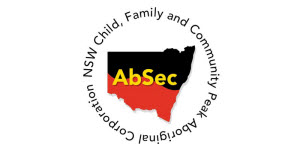Behaviour management in out-of-home care
While fostering a child can be one of the most rewarding experiences in life, often children and young people in care have experienced trauma that can create mistrust of adults. Because of this, they can sometimes respond or act in ways that carers find difficult to manage.
It’s important to understand that the child or young person in your care is not just trying to be difficult. Most kids in care live with ongoing anxiety, alarm and deep emotional pain, even if it isn’t obvious on the surface. This can create a fight, flight or freeze response (a physiological reaction to a perceived harmful event, attack, or threat to survival). Usually, it’s those underlying feelings that are driving the behaviour.

Ensuring the safety and wellbeing of children and young people in foster care is the highest priority and appropriate and positive behaviour management strategies should always be implemented.
Restrictive practices are not permitted as they could cause harm to the child or young person unless specifically implemented as part of a behavioural support plan (BSP).
At Narang Bir-rong, we are committed to providing our carers with the appropriate skills and tools to enable them to support the children and young people in their care, and our team of caseworkers are always available to support you in managing difficult behaviours and any other challenges that may arise.
Here, we provide some useful information about what constitutes restrictive practices and alternative strategies that can be more effective for both you and the child in your care.
What are restrictive practices?
The Department of Family and Community Services clearly outlines restrictive practices in behaviour support in out-of-home care, as: “any practice or intervention that has the effect of restricting the rights or freedom of movement of a child, with the primary purpose of protecting the person or others from harm.”
Restrictive practices should never be used, unless part of a formal behaviour intervention as set out by caseworkers and behaviour management experts in the child or young person’s approved behaviour support plan (BSP).
Types of restrictive practices
As a carer, using the least intrusive approach is essential for any behaviour support strategy. Below, we outline the types of restrictive practices to ensure you are aware of what constitutes these practices and to avoid them where possible.
Physical restraint: Physical restraint is an action taken to restrict a child’s movement. Any use of physical restraint of a child that is not in accordance with section 158 of the Care Act can constitute a criminal offence or incur civil liability.
To summarise section 158 of the Care Act: it applies to a one-off use of physical restraint in a crisis, and only when a child is behaving in a way that they might seriously injure themselves or another person, the carer or staff caring for the child may:

- Temporarily restrain the child, only to the extent necessary, to prevent them seriously injuring themselves or another person
- Remove alcohol, illegal substances, a weapon or any objects being used by the child in a dangerous manner
- Remove any other objects or implements necessary to prevent the child from harming themselves or another person.
Response cost: Response cost refers to a planned response to a specific behaviour that involves removing a child’s access to rewarding items and/or activities, such as TV or computer games, as a consequence of certain behaviour.
Denying access to activities that are needed for their personal development and wellbeing is not appropriate.
While response cost is generally not considered a restrictive practice that requires formal approval, if it is used to target a particular behaviour, it should be included in the approved Behaviour Support Plan.
Restrictive practices of response cost do not refer to the following:
- Threatening removal from your family
- Not letting them see their birth family as scheduled
- Cancelling a special occasion such as Birthdays, Easter, Christmas etc
- Denying access to basic needs and services such as restricting access to:
- Food, including placing locks on cupboards, fridges, pantry etc
- Bathroom
- Bedroom
- School
- Agency
- Withholding prescribed medication.
These practices are known as “Prohibited Practices” and would not be considered appropriate, ever.
Restricted access: Limiting a child or young person’s independent access to items, activities, experiences or places using physical barriers is known as restricted access.
If a restricted access strategy is implemented to manage behaviour or for safety reasons (e.g. limiting access to a mobile phone), it must be as part of the child’s formal Behaviour Support Plan strategy and must not involve seclusion (i.e. placement of a child in a setting where they are confined in a room or area from which they cannot leave).
Everyday safety precautions that are not targeting specific behaviours (e.g. locking away household chemicals or prescribed medications) do not require a Behaviour Support Plan.
Non-exclusionary time-out: Non-exclusionary time-out is a common behaviour management strategy that involves carers withdrawing their attention or interaction with a child for a short period of time so that they do not reinforce the behaviour.
If used to target particular behaviours, non-exclusionary time-outs should form part of the approved BSP.
Exclusionary time-out: Finally, exclusionary time-out relates to actions that remove a child from a situation in order to prevent activities that reinforce a specific behaviour of concern.
Exclusionary time-out may only be used as a temporary safety measure if the child is at risk or seriously injuring themselves or another person.
These are not to be confused with “Prohibited Practices”, which are not to be used as a form of discipline management. Prohibitive practices are not considered effective and are never ever put within a behaviour support plan for a child. These include:
- Hitting, smacking, pinching, punching, pushing or any other forms of assault with your hand or implement such as stick, belt, shoe etc
- Threatening a child with “telling” the worker/birth family as punishment
- Prolonged silences as a form of control
- Locking a child in a room.
Crisis management: On rare occasions, restrictive practices may be required during a crisis – a critical event and/or reportable conduct incident. However, a crisis cannot be used to justify the continued use of restrictive practices.
In the event that this does occur, your caseworker or behaviour support expert will develop, or review, the BSP so that strategies can be implemented to prevent a crisis from occurring again in the future.
Effective discipline strategies
Positive behavioural management strategies are at the core of all our behavioural support plans, as they teach and encourage positive behaviour, and are often more effective than using punishment.
Referred to as ‘effective discipline’, these strategies involve developing a safe and caring relationship where the child or young person knows they have a stable environment and competent carer. Caring for Children is a useful tool for positive behaviour management.

Key techniques:
- Explain the ground rules: Set clear expectations that are matched to the age, developmental stage and maturity of the child or young person.
- Keep it simple: Outlining just a few simple rules helps kids understand the boundaries. Setting reasonable, consistent and enforceable boundaries is easier when you focus on the most important aspects.
- Stay calm: Recognising your own emotional triggers and having strategies that will help you cool down is very important.
- Teach rather than punish: Teaching focuses on what kids should be doing, whereas punishment puts the focus on what not to do. When problems or misbehaviour occur, think less about ‘punishment’ and more about helping the child recognise more appropriate behaviours.
Remember that it takes time for children to adjust to their new surroundings. Just because you outlined the rules on day one and they have followed them on days one, two, three and four, does not mean they may not disobey you on the fifth day. Children require consistent reinforcement and encouragement.
Behaviour support plans
At Narang Bir-rong, we strongly encourage our carers to use the behavioural management tools that we provide through our BSPs.
Sometimes BSPs may be appropriate when positive parenting approaches and other behaviour support strategies have not successfully addressed the behaviour.
A BSP is developed by caseworkers and service professionals with the goals of strengthening positive behaviours and personal interests of the child or young person in care. Understanding the cause of certain behaviours is of paramount importance, as are the ongoing effects of any past trauma.
BSPs are designed to equip carers and caseworkers with appropriate strategies to manage, or ideally prevent, behaviours that are having concerning consequences for the child or young person.
BSPs will have clearly identified circumstances where specific restricted practices can be used within the context of behaviour management, and to include the appropriate authorisation of those.
Your caseworker should review the Behaviour Support Plan with you within the first few weeks, and then every three months from then on.
Our caseworkers are always available (at any time of the day or night) for additional support, which includes referral to external services.
Narang Bir-rong
At Narang Bir-rong, we are committed to helping all our carers by providing tools and skills to support them and the children in their care.
Contact our casework team today to find out how we can help.
Supported by












